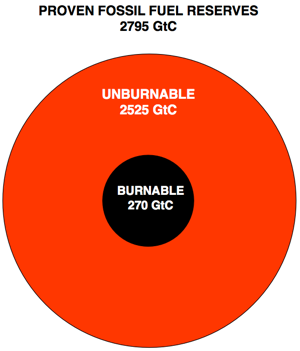Put Climate First on the First of the Month
ClimateFast stands with Fast for the Climate on the first of every month. On January 25 ‘14 Yeb Saño posted this article on his Facebook page, summarizing the link between this on-going effort and the global solidarity movement.
Are you fasting with ClimateFast to Put Climate First on the First of the Month? Will you take action this month? Write a politician in your area asking them what the carbon budget is for your city, province, or for Canada (for help use the House of Commons search site). Or write a letter to the paper pointing out the need for a carbon budget.
"The Budget” in Canada -- but what about our Carbon Budget?
On February 11 ‘14 the Federal Government issued its annual budget, establishing economic priorities and the financial spending plan for the government in all areas of Federal Government activity – the military, income support programs, the environment, First Nations, inspection and regulation, and so on. This budget continues strong subsidies to oil and gas companies, while renewable energy programs languish. What it fails to do is to establish our carbon budget and how we plan to meet it.
 Canada needs a carbon budget if we are to keep global warming to a maximum of two degrees Celsius (as all world leaders including Mr. Harper have agreed to do.). A carbon budget is a fixed, cumulative and global limit on the amount of carbon that can be emitted. According to “Do the Math”, a documentary made by 350.org, the problem is simple: the planet has five times more existing reserves of fossil fuels than we can afford to burn. The recent report from the IPCC (International Panel on Climate Change) has radically reduced that budget. It suggests we only have a 66% chance of holding climate warming to 2 degrees C if we can limit future emissions to 270 gigatonnes — anything more than that risks frequent, intense and disastrous weather events. (For more background on the carbon budget read Carbonbrief's blog)
Canada needs a carbon budget if we are to keep global warming to a maximum of two degrees Celsius (as all world leaders including Mr. Harper have agreed to do.). A carbon budget is a fixed, cumulative and global limit on the amount of carbon that can be emitted. According to “Do the Math”, a documentary made by 350.org, the problem is simple: the planet has five times more existing reserves of fossil fuels than we can afford to burn. The recent report from the IPCC (International Panel on Climate Change) has radically reduced that budget. It suggests we only have a 66% chance of holding climate warming to 2 degrees C if we can limit future emissions to 270 gigatonnes — anything more than that risks frequent, intense and disastrous weather events. (For more background on the carbon budget read Carbonbrief's blog)
Burning the fossil fuel that corporations now have in their proven reserves would result in the emission of 2,795 gigatonnes of carbon – almost ten times the carbon budget. Fossil fuel companies are planning to burn it all — unless we rise up to stop them. Millions of lives and perhaps civilization itself may be at stake.
Every country in the world needs to be developing the capacity to closely track its carbon usage, and to take corrective action when we are exceeding our limits. What we count is what we value. We must count our greenhouse gas emissions and systematically reduce them.
In November, during the UN Climate talks, Germanwatch released the Climate Change Performance Index.
Canada and Australia are the worst performers of all industrialised countries.
"Warsaw. (18. Nov. 2013) The new edition of the Climate Change Performance Index (CCPI) was released by Germanwatch and CAN Europe in Warsaw at the UN climate talks today. The results show emissions worldwide have climbed to a new peak and no single country is yet on track to prevent dangerous climate change."
The world must come to negotiated agreements as to what is fair carbon usage for each country and how the negotiated standards will be enforced. We would like to see Canada leading the world towards a transition to a renewable energy economy. Instead, we are being dragged kicking and screaming to the table. We need an attitude change before COP20 (United Nations Climate Conference) in November.
Instead, we continue to make oil and gas the foundation of our economy while other countries move ahead into the Fourth Revolution – The Energy Revolution toward renewable energy.
The Great March for Climate Action
– stepping forward for our Planet, our Future -- starting March 1st!
Historically, marches have been critical catalysts for mobilizing mass movements of people on behalf of peace, justice, equality and political reform. Coincidentally perhaps, the great marches of the last century started in the month of March. This march kicks off on March 1, 2014 from Los Angeles to Washington, DC, November 1, 2014. Learn more at: climatemarch.org
